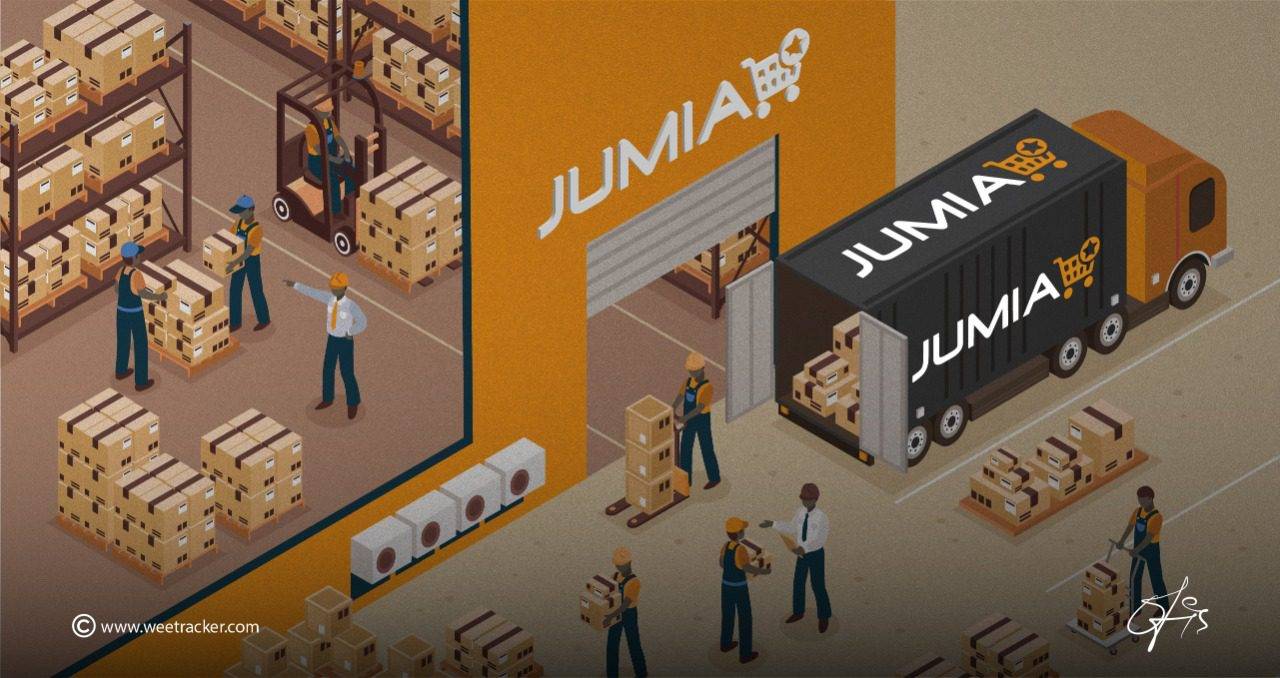Frugal Economics And Tough Calls Keep Jumia On Song And On Toes

Jumia’s fourth quarter (Q4) and full-year 2020 results are out and as always, so is the jury. Well, for what it’s worth, the e-commerce giant that fell into troubled times two years ago appears to be getting something right.
Jumia’s results for the fourth quarter and full-year ended December 31, 2020, suggest significant progress towards profitability and declining losses. At face value, it seems that the worst of the storm has passed and the ship is getting steadied. But that would be the result of some serious tinkering, especially since that 2019 IPO fanfare quickly became a horror show.
As seen in the just-released results, Jumia’s Gross Profit increased by 12 percent year-over-year, its Gross Profit after Fulfillment (GPAF) expense reached a record EUR 8.4 Mn, and Adjusted EBITDA loss decreased by 47 percent year-over-year.
Interestingly, the first time Jumia ever recorded a profit after fulfillment expenses was in Q4 2019 when a paltry EUR 1.0 Mn was reported. Fast-forward to Q4 2020, that figure is EUR 8.4 Mn. It’s taken some doing, though.
When Jumia set foot on the African continent back in 2012, the company had one mission in mind: to become Africa’s leading e-tailer.
To make this happen, Jumia set out to do e-commerce the classic way: acquire vast inventory, set up expansive warehouses, expand into multiple countries, hire a lot of people, and get everyone to shop online with the promise of ease and convenience. Those may have been its first missteps.
Even with a less elegant pay-on-delivery model, which was essentially a compromise adopted to cater for a trust deficit and the unreliable digital payment systems at the time, issues like inefficiencies in the logistics network, low consuming power, non-consumption, and apathy still kept Jumia in a tough spot.
By the time Jumia had built a brand with some intense and aggressive marketing, as well as assemble an in-house logistics division (Jumia Logistics) and rollout a payment gateway (JumiaPay) to solve some of the difficulties in the market, it had hemorrhaged millions in losses with little to show for it by way of actual sales.
The first necessary reset was implemented in 2016 when Jumia opted to whittle down its in-house inventory and introduce a third-party vendor marketplace to supplement the company’s inventory. By reducing its spending on accumulating products, it was expected that losses would ease up a bit. However, the losses soared, still.
In the end, it took nearly a decade and a billion-dollar IPO for the ultimate reset to happen. After a short sell attack and some squabbles over improper sales practices sent Jumia reeling in 2019, a raft of tough calls was made.
After exiting 3 underperforming markets and letting go of its travel business later that year, Jumia reiterated a strong commitment to arresting losses, moving towards profitability, and pursuing a “business mix rebalancing.”
The “rebalancing” saw Jumia adjust the content of its merchandise, doubling down on everyday household consumer goods and cutting down on big-ticket items such as electronic appliances and gadgets.
Also, the company further eased itself of the burden of procuring merchandise. Instead, Jumia became more of an enabler of third-party e-commerce and less of a seller of in-house merchandise.
Further, the e-tailer basically also became a logistics company when it opened up its robust logistics division to anyone who wants to move stuff. Jumia also took an interest in advertising and payments (with JumiaPay), launched fully in South Africa, and trimmed down marketing and operating costs in a manner that suggested wastage will no longer be had.
Those pragmatic calls appear to be yielding the desired fruit. Although Jumia’s Gross Merchandise Value (the value of goods sold) has dropped over several quarters, it appears to have found a formula for stemming losses which had ballooned to over USD 1 Bn at one point.
In the latest report, Jumia’s GMV was EUR 231.1 Mn, a quarter-on-quarter uptick of 23 percent supported by the Black Friday event in November 2020. But looking at the full picture, GMV was down 21 percent year-over-year.
The company attributes this to the effects of the business mix rebalancing initiated in late 2019. In essence, the company is selling less but so is its spending.
Additionally, gross profit reached EUR 27.9 Mn, a year-over-year increase of 12 percent, and GPAF reached a record EUR 8.4 Mn, compared to EUR 1 Mn in Q4 2019.
Jumia’s revenue has been in a slump for quite some time given the switch in its business model. That trend seems to have carried on as Jumia’s First Party revenue decreased by 41 percent in the fourth quarter of 2020 compared to the fourth quarter of 2019.
“This was in line with our strategy to undertake fewer sales on a first-party basis as we focus on running an asset-light marketplace model where third-party sellers offer consumers an expanding range of products and services,” the company says.
But those first-party losses may have been the marketplace’s gain as Jumia’s Marketplace revenue reached EUR 27.7 Mn in the fourth quarter of 2020, up 7 percent compared to the fourth quarter of 2019.
The e-tailer says this was “mostly driven by increases in Commissions, Fulfillment, and Marketing & Advertising revenue streams, which increased by 19 percent, 14 percent and 30 percent year-over-year respectively.”
However, Jumia’s overall revenue slipped 15.3 percent in Q4 2020 to EUR 41.8 Mn compared to EUR 49.3 Mn in Q4 2019. Looking at things on an annual basis, Jumia’s revenue fell 12.9 percent in 2020 to EUR 139.6 Mn from EUR 160.4 Mn in 2020.
Nevertheless, it does look like a turnaround is on the cards for Jumia which has, over the past five months, seen its stock rise on the New York Stock Exchange (NYSE) on the backs of a perceived resurgence. It’s quite the switch from the nightmarish post-IPO lows of 2019.